Until a few weeks ago I thought 2014 was turning out to be pretty weak for films but recently having watched the excellent movies The Imitation Game and Mr Turner I became intrigued by a trailer I had seen detailing a true story from the war in Afghanistan.
The events depicted in Kajaki are based on fact and I vaguely remember hearing the reports of the events here soon after they happened. Of course for those of us not directly involved it is hard to keep track of the hundreds of lives lost in Afghanistan and indeed of the brave men and women who were wounded until one notices them occasionally often wearing artificial limbs due to the injuries they received from IEDs or mines.
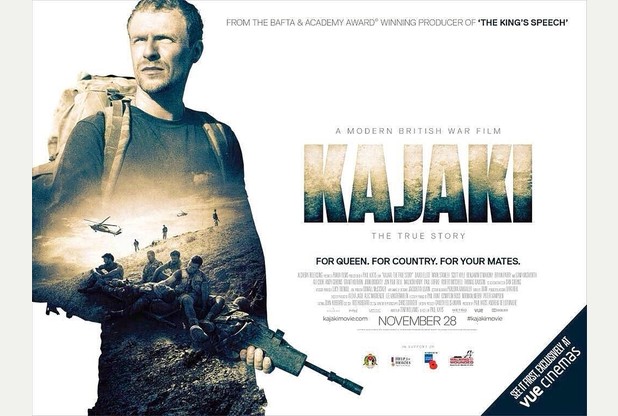
The trailer for Kajaki is quite low-key and that is what attracted me to watching the film in the first place and I can only say that everyone should go and see this film as it won’t let you down.
Kajaki tells the story of a small detachment of British troops from 3 Para in Afghanistan tasked with manning posts on a high ridge overlooking the Kajaki Dam. The Taliban have been fought off and don’t generally come near the fortified positions though they are active in some of the valleys, particularly at night-time. The Kajaki Dam is a strategic asset to the Allies as it can provide vital electricity and irrigation to an otherwise bleak area. The insurgents are desperate to stop the dam from getting into full operation as they realise that if the locals can see the benefits of power and water then they’ll be more supportive of the Allied efforts.

The soldiers are quite bored on their posting with not much to do but tolerate the heat, think of home and make fun of each other mercilessly. Sometimes they go out on routine patrols and on one such occasion a patrol goes off into the valleys and one of the men accidentally steps onto a mine. It comes as a complete and violent shock and for a moment we wonder how anyone could survive until the dust clears and we see a soldier with most of his legs blown off.
Due to the steep rocky mountains, the communications are flakey and unable to easily make contact with their local HQ or call for helicopter support to have the injured man winched to safety. This causes his desperate colleagues to come to his aid, all the whilst keeping an eye out for the insurgents who are thought to have heard the explosion and would find the immobile patrol easy pickings.
Unfortunately whilst tending to their injured friend, a number of other soldiers set off mines. It becomes clear they have accidentally found themselves in the middle of a Russian minefield and with inadequate medical supplies for the number of life-threatening injuries sustained.
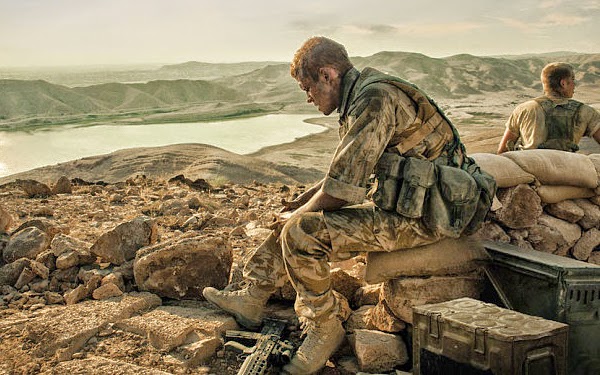
Air-support takes hours to arrive and despite asking for a helicopter with a winch to arrive, a massive Chinook helicopter with no winch lands nearby but there is no way to get to the injured men or the equally trapped survivors. The Chinook takes off and the huge downdraft of the helicopter blades moves some of the small stones and rocks that litter the valley floor and mountainsides which in turn sets off further mines and injuring more men.
The soldiers can only rely on their mates, bravery and humour and it is a miracle any of them survive the 3 or 4 hours until they are rescued but for their commander who keeps his squad morale and discipline up, help comes tragically too late.
I must admit that I am a fan of war films. Not all of them, I don’t care for the Hollywood over the top style actions, patriotism, and caricatured characters. Actors hired because they have unrealistically large muscles but largely unable to act and who don’t look like any soldiers I’ve ever met or seen from any country. There is none of that in Kajaki, there isn’t even any pounding music and the story doesn’t need it anyway. Some of this may be due its smaller budget but it is no way a cheap film to look at, it looks like a Hollywood blockbuster but it has the characters and tense feeling of an independent film which to me at least seem so much more real and I feel much more comfortable with the portrayal of the soldiers too.

The film starts off quite slowly and we get to see the pretty horrid conditions of the soldiers stuck around their ridge overlook the lake. The film looks beautiful, the scenery is amazing and early night shots make me wish I was back in the desert myself, though not at Kajaki.
The writing of this film is very sharp and without exception I loved all of the actors in it, most of which I haven’t seen before. The humour of the film is spot on and made me laugh out loud several times (I loved the comment about the bomber pilot not being able to finish his dinner) as I just know that is what a group of lads would be like. They aren’t super hero soldiers, they’re just ordinary men who are making the best of their situation. Fiercely brave and with the best camaraderie imaginable. I wish I could print some of the humour here but I can’t.
I really like how normal the soldiers are in this film, having recently been watching two army training documentary series, one of which is for the Paras which are featured in the film, the people behind Kajaki have got it spot on. The attitude of the lads, the feeling of them totally trusting each other and most of all the incredible suffering and bravery they go through when things go wrong.
The individual scenes where the soldiers accidentally tread on the mines are all shocking and each one is no less shocking than the one before. Some of film is quite difficult to watch with awful injuries depicted very graphically but without unnecessary gore. I wasn’t the only one who found myself moving my leg around in the cinema in discomfort.
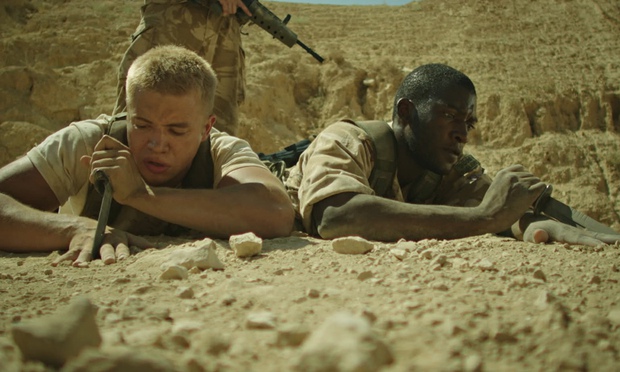
Much of the film is extremely tense and the lady near me was shouting with anxiety as much when things didn’t happen as when they did. I was totally absorbed and in awe of the men. The film made it seem like I was really there and all the actors played their parts so well. It would have been easy to mess this up having so many roles to fill but each of them were perfect and were clearly identifiable even in the chaos of the minefield with great performances from people like David Elliot, Andy Gibbons, Liam Ainsworth, Jon-Paul Bell, John Doughty and many others. I had my hands clenched and my eyes almost in tears at their almost hopeless situation.
I particularly liked how the men coped with the situation and how they kept each others moral up and through their on-site treatment which was terribly painful and they were shouting and swearing, they still thanked their comrades for treating them and insulted each other.
I can’t single out individual actors as I think this film is a real group effort but a certain part of the film had me even further on the edge of my seat than usual. That is when the medical supplies of morphine and tourniquets have run out but there is a possibility of them being in a rucksack half way across the minefield. The bravery of going out to get it and then the doctor throwing the sack 6 feet in front of him and jumping on top of it, each time potentially to his death whilst knowing even if he makes it, he may get killed going back.
The actual soldier Paul Tug Hartley described that moment in a recent interview
“You have mixed emotions. They’re your family at the end of the day…your brothers. I lived on top of that hill with them guys and we fought together and survived together. There was a part when I crossed the minefield and I paused for a split second and it felt like an eternity. It was my son’s birthday the next day and I just thought ‘What am I doing here? In this stupidity? It’s Sod’s Law, if I go forward I’ll probably get hit by one (a mine), if I go back I’ll get hit’. But looking at the guys that were injured, I knew it was my job.”
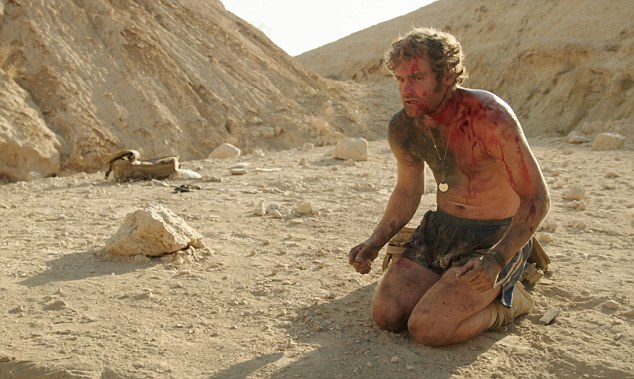
This isn’t a war film about shooting baddies, cool-catchphrases and huge set-piece action battles but the timeless qualities of bravery and heroism and team-spirit and I loved every moment of it, even the hyper-realistic makeup.
It’s probably my favourite war film since Black Hawk Down and likely the best British war film since the 1960’s and films like the Great Escape, Where Eagles Dare and my favourite Zulu. In this anniversary year of WW1, I’m sure that whatever else has changed, the heroics of professional soldiery hasn’t changed.
Kajaki makes no comment on the morals of the Afghan or indeed Iraqi campaigns, if anything can be taken from the film aside from the bravery of the men it is the traditional lack of equipment where it is needed. Out of all of the medals awarded to British soldiers in Afghanistan, around 80% of them were awarded to soldiers who bravely made the most of situations like this where things went wrong or support was found lacking rather than in planned actions themselves.
Long before the end of the film I had lost the ability to differentiate between the actors on-screen and the real life heroes which they portrayed and the film concludes with photos and captions of the actors and the real-life counterparts some of whom served several tours in Afghanistan, (indeed one because the first man to return to active duty in Afghanistan with an artificial limb) whilst others like Corporal Mark Wright did not survive.
It’s a film that I will remember for a long time, my only very small complaint is that I felt the final few minutes before the final rescue seemed slightly drawn out but then maybe I had just seen enough of the suffering and like those involved were waiting for it all to end and make sure everyone survived.
I give this film a definite 10/10!
As an interesting aside, I watched this at 10am on Monday morning which gave me a select audience of a 20-somethings, a middle-aged woman and an elderly lady who was well into her 80’s if not older. She was on the edge of her seat and perhaps unused to modern war films found some of the scenes tough to watch and yet to my surprise she laughed at nearly as many of the funny male-jokes as I did.
After the film I hurried over to chat to her and a few others came over as well. We had all really enjoyed it though felt a little traumatised ourselves. I thought the old lady maybe had lost a Grandson in Afghanistan but incredibly she hadn’t. Made redundant from her work in 1976, she spent all her money going to visit Afghanistan where she stayed for several months until the Soviet invasion. She wanted to see the film because of how much she loved Afghanistan and the people there and she really hopes that the recent war there will get the country out of extremism. It’s fair to say that if we both liked it then you might too.
I haven’t been to Afghanistan yet though I always wanted to visit. I have been to Jordan though where Kajaki was filmed and can vouch for the feel desert like mountains in the film. Kajaki was crowd-funded and is currently only on release in Vue Cinemas but it will surely be given wider exposure very soon. In the mean-time the self-sacrifices in this film and the most profound I have ever seen and if I ever do get to visit Afghanistan then it will be in no small part thanks to the men of 3 Para and the many other men and women who served and often died like them.
Like many others involved in the events in Kajaki on 6th September 2006, Corporal Mark Wright was awarded the George Cross. His citation reads:
“Despite this horrific situation and the serious injuries he had himself sustained, Cpl Wright continued to command and control the incident. He remained conscious for the majority of the time, continually shouting encouragement to those around, maintaining morale and calm amongst the many wounded men.”
When survivors of that day gave later evidence to the inquest, they were told by Andrew Walker, the deputy Oxford coroner: “You are courageous and utterly fearless. I have nothing but admiration for you and your fellow soldiers.”
Written by Tom Williams and directed by Paul Katis, Kajaki is an awesome film with amazing actors portraying ordinary soldiers who heroic actions deserve to become legendary and is supporting Help For Heroes. Many times this summer I read in WW1 how the soldiers in trenches didn’t fight for their King, country or even family back home but for their friends standing right beside them and you can see just what they meant here. I am totally in awe of them and Kajaki may just be the best war film ever. If any of the actors or soldiers involved here ever read this, do let me know.
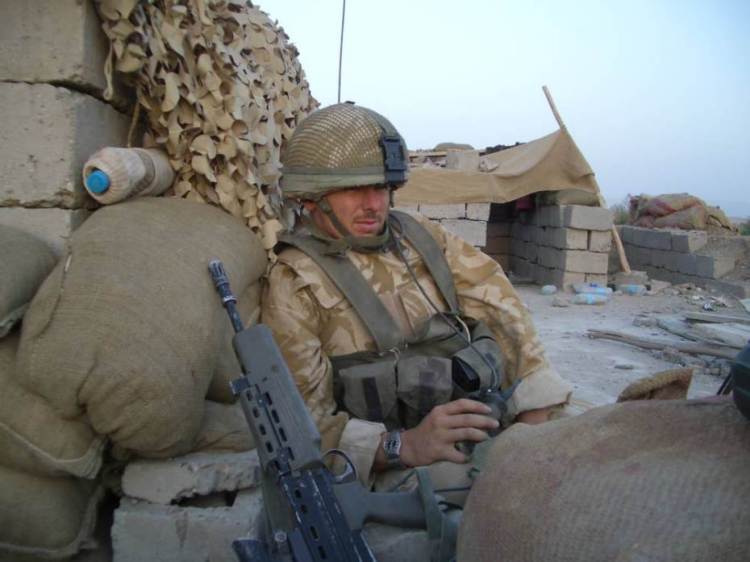
A great review Stephen, thank you. I think its spot on, though, as one of the exec producers, I may be a little biased! Alec Mackenzie.
LikeLiked by 1 person
Thank-you Alec, I am honoured. You’re not biased though, we just share a good taste! What a great group of people you have on the film. Several of them have been in touch this afternoon. I hope the boys who the film is based on are pleased with it too. Well done, I hope you win a lot of awards for it.
LikeLike
Fantastic write up Stephen, as one of the injured I can vouch that the film is a true reflection of what happened that day, thanks.
LikeLike
Hi Stuart, I’m so pleased that you liked my write up. it means a lot that someone so central to the events got in touch. I’m really sorry about what you all went through but I’m sure I’m not the only one who wants to say thanks for everything and also how proud we all are of you and everyone else who served there. I hope life is treating you well now.
LikeLike
Well said Stephen. We all owe our armed forces a debt of gratitude.
LikeLiked by 1 person
An absolutely fair write up for one of the best movies, ever!
LikeLike
Stephen, i’m so proud and humbled to be a small part of this film. Excellent review! probably one of the best i’ve read so far, very respectful that you included the citation of Cpl Mark Wright. You are helping cement the legacy of his and all the other lads actions on that day of days.
LikeLiked by 1 person
Thanks so much for leaving a message Paul. I would have dropped in a few more names if I’d known how many people would contact me here, on twitter and by email! I guess it shows just how important the original events are and what a great movie you have all made. I’m honoured if in any way I am helping Cpl Mark Wright, Stuart and the other brave heroes that day. Having thought about it this morning, as incredible as Tugs actions were as a medic, I think everyone of them would have done exactly the same for the other lads. Such a selfless bunch of lads. I’ll keep cheerleading them, you and the film for as long as anyone will listen!
LikeLike